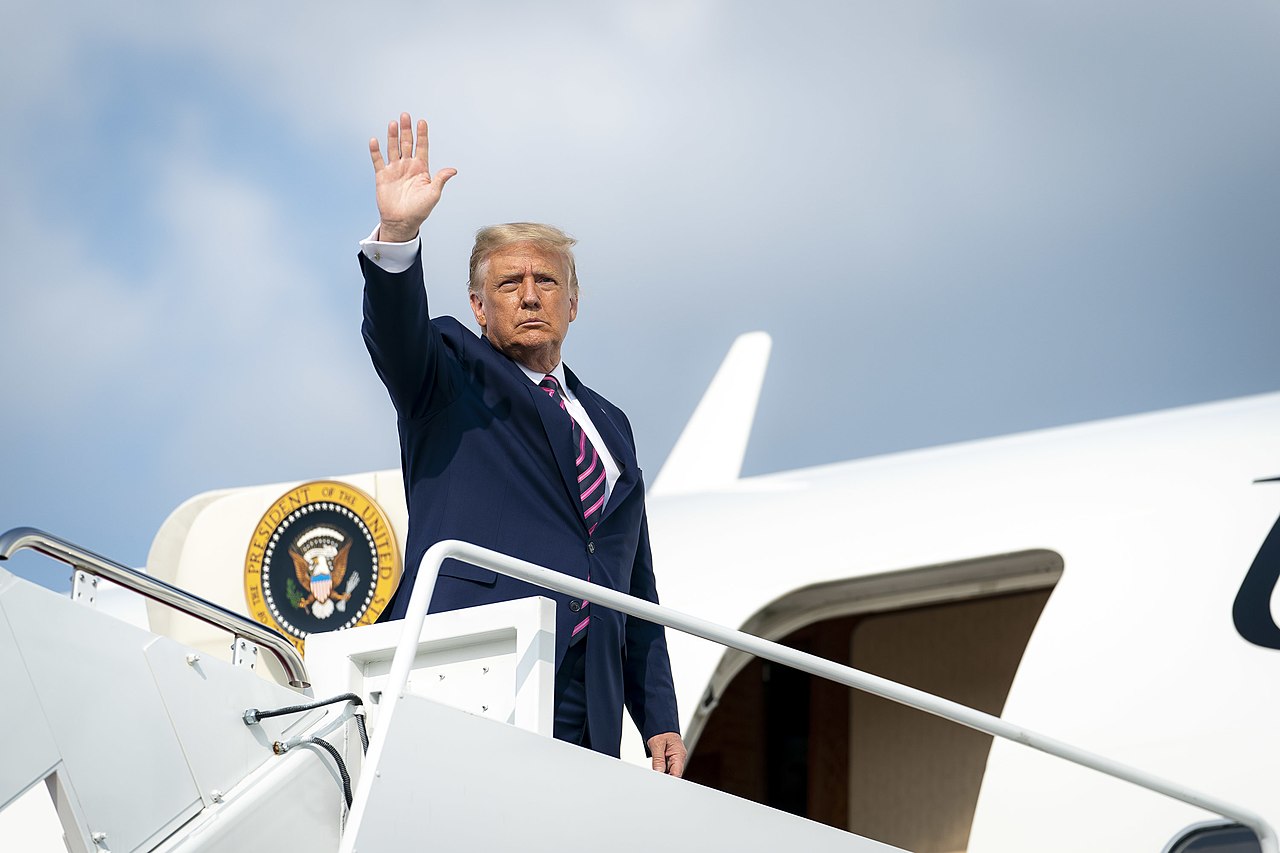

No matter how hard we try, we can't stop talking about tariffs. Trump's proposed tariffs, specifically, in a bid to make Americans buy more of their own stuff. Over the weekend, Trump told a group of steel workers in the US that he plans to double the proposed trading tariffs on steel imports into the US from 25% to 50%. Here's what it means for the upcoming day and week's market movement.
Speaking at a rally in Pennsylvania, surrounded my miners and a sea of hard hats, President Trump announced off-the-cuff that his administration would double the tariffs on steel imports taken in from overseas.
His quotes from the podium:
“We're going to bring it from 25% percent to 50%—the tariffs on steel into the United States of America—which will even further secure the steel industry in the United States."
He later posted about his decision on social media, revealing that the tariffs would also be raised for aluminum.“Our steel and aluminum industries are coming back like never before,” Trump wrote on Truth Social. “This will be yet another BIG jolt of great news for our wonderful steel and aluminum workers.”
And there's no explanation to the new doubling of tariffs on steel in particular. Trump hasn't released any rationale behind the move, presumably just looking for a cheer-line from a sympathetic audience.
Not this time, according to Trump.
When speaking to steelworkers, Trump capped his quote with a galvanised coffin nail for Australia's iron ore-faithful:
"Noone's getting around that," the President said of 50% steel tariffs.That's bad news, considering we got out of it last time.
Back in 2018, when then-President Trump first slapped a 25% tariff on imported steel under national security grounds, Australia was one of the few countries to escape unscathed.
Prime Minister Malcolm Turnbull personally lobbied the Trump administration, ultimately securing an exemption that spared Australian steel and aluminium from the tariffs. It was a rare diplomatic win in an otherwise protectionist push, with Trump later confirming via tweet that he had a “great relationship” with Turnbull and that Australia would be treated “very differently” as a result.
The deal helped shield Australian exporters and kept prices competitive at a time when global markets were rattled.
The Australian government has expressed strong opposition to the tariffs. Trade Minister Don Farrell criticized the move as “unjustified” and “not the act of a friend,” emphasising that the tariffs harm both consumers and industries reliant on free trade.
Prime Minister Anthony Albanese is expected to address the issue directly with Trump during the upcoming G7 summit in Canada, marking their first conversation since Trump’s re-election.
In the meantime, Australian industry groups are urging the government to consider safeguard measures to protect against potential dumping of cheap steel imports into the domestic market . The Australian Steel Institute has called for the enactment of safeguard quotas and tariffs to shield smaller players from the impacts of the U.S. tariffs.
This isn't just bad news for our local steel industry (sorry Bluescope and Liberty). Like it or not, Australia is the number one exporter of iron ore, which is crucial in steel production all over the world, with most of it winding up in Asia. We export almost a billion tonnes of it a year. Last year we even upped our exports by 1.6% to 866 million tonnes of the stuff. That's something like 40% of the global market
However, Australian trade reps have been quick to calm market fears. On Trump's so-called "Liberation Day" back in April, we saw the Federal Government issue a "stay calm" statement saying that the US doesn't actually take in that much Australian steel or iron ore:
Australian steel and aluminium exports to the US represented less than 0.2% of the total value of Australian exports in 2024.
Of course, the devil is in the details, as always. Australia exports something like $665 billion in total every year. A 0.2% hit to that number still means we're looking at a billion-dollar impact to the local economy. No small bikkies here.
The news is likely to rattle the local market today and throughout the week. ASX 200 futures are relatively flat early-Monday morning.
The last time we saw Trump announce his tariffs back in April, the market fundamentally shifted away from resources stocks. Tariffs were announced on April 2, and by April 9, the market had routed significantly.
And they haven't significantly recovered yet, either. As you'll see in the charts below Australia's big miners - including BHP, Rio Tinto and Fortescue - are all still trading in the red. While there has been some recovery, expect these stocks to go down on the most recent news, no matter how much steel or iron ore we do or don't export to the US.
If there's one thing all markets hate more than new trade barriers, however, it's uncertainty. This is the main reason stocks tanked across the ASX in the wake of "Liberation Day" tariff announcements. There was uncertainty about how the new tariffs would be applied across different industries, countries and partners.
For that reason, the market may see sense, and arrest some of Monday's potential losses out of local iron ore producers. Trump has already said the 50% tariffs apply with no exemptions. And even if it is a negotiating tactic to try and get a better "deal" out of Australia in future trade negotiations, Albanese is already set to meet face-to-face with Trump at the upcoming G7 in Canada.
As always, don't forget the TACO theory: Trump Always Chickens Out.